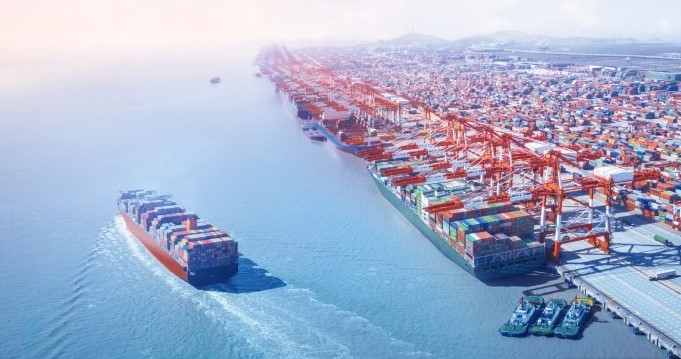Ahead of a projected increase in global shipping volumes, a new report reveals for the first time the full extent of the impact of the EU maritime transport sector on the environment and identifies challenges to achieving sustainability.
Namely, the first up to date and comprehensive overview of the environmental transport sector in the EU, the EMTER (European Maritime Transport Environmental Report), is a joint report produced by the European Maritime Safety Agency (EMSA) and the European Environment Agency (EEA).
The EMTER report provides a factual analysis of the environmental pressures exerted by the maritime transport sector. It gives up-to-date information on the relevant EU and international environmental standards and describes current and future actions to reduce the sector’s impact on our environment.
The paper shows that ships produce 13.5 % of all greenhouse gas emissions from transport in the EU, behind emissions from road transport (71 %) and aviation (14.4 %). Sulphur dioxide (SO2) emissions from ships calling in European ports amounted to approximately 1.63 million tonnes in 2019, a figure which is expected to fall further over the coming decades due to stricter environmental rules and measures.
Maritime transport is estimated to have contributed to the fact that underwater noise levels in EU waters have more than doubled between 2014 and 2019 and has been responsible for half of all non-indigenous species introduced into European seas since 1949.
However, even though the volume of oil transported by sea has been steadily increasing, only eight accidental medium to large oil tanker spills out of a worldwide total of 62 occurred in EU waters over the past decade.
The joint report assesses the current state of emerging maritime transport sustainability solutions, including alternative fuels, batteries and onshore power supply, and provides a comprehensive picture of their uptake in the EU. It also outlines future challenges posed by climate change for the industry, including the potential impact of rising sea levels on ports.
Key impacts on the environment
- Greenhouse gas emissions: in total, ships calling at EU and European Economic Area ports generated 140 million tonnes of CO2 emissions in 2018 (approximately 18 % of all CO2 emissions generated by maritime transport worldwide that year).
- Air pollution: In 2019, sulphur dioxide (SO2) emissions from ships calling in European ports amounted to around 1.63 million tonnes, approximately 16 % of the global SO2 emissions from international shipping.
- Underwater noise: Ships create noise which can affect marine species in different ways. It is estimated that between 2014 and 2019, the total accumulated underwater radiated noise energy more than doubled in EU waters. Container ships, passenger ships and tankers generate the highest noise energy emissions from propeller use.
- Non-indigenous species: Overall, since 1949, the maritime transport sector has accounted for the largest proportion of non-indigenous species introduced into seas around the EU — close to 50 % of all species, with the largest number found in the Mediterranean. A total of 51 species are all classified as high impact, meaning that they can affect ecosystems and native species. The report also notes the limited data available in assessing the full impact on habitats and species.
- Oil pollution: out of a total of 18 large accidental oil spills in the word since 2010, only three were located in the EU (17 %); better monitoring, enforcement and awareness is helping to reduce oil pollution events even though the amount of oil transported by sea has been steadily growing for the past 30 years.
“While Europe’s maritime transport sector plays a vital role for our economic well-being, this report clearly shows that maritime transport in Europe and the entire international shipping community have an urgent responsibility to step up their efforts to reduce this sector’s environmental footprint. While steps have been taken already based on European and international policies, much more is needed for a fundamental shift towards a sustainable maritime transport sector that contributes to secure the future well-being and survival of our most sensitive ecosystems and coastal areas, and the well-being of Europeans,”
…Hans Bruyninckx, EEA Executive Director, noted.
Navigating towards sustainability
EU maritime transport faces a crucial decade to transition to a more economically, socially and environmentally sustainable sector.
Already, most ships calling in the EU have reduced their speed by up to 20 % compared to 2008, thereby also reducing emissions, according to the report.
In addition, non-traditional fuels and energy sources, such as biofuels, batteries, hydrogen or ammonia, are emerging as possible alternatives for shipping, with the potential to decarbonise the sector and lead to zero emissions. Onshore power supply (where ships shut down their engines and connect to a power source on land while berthed at port) can also provide a clean source of energy in maritime and inland navigation ports.
EXPLORE THE EUROPEAN MARITIME TRANSPORT ENVIRONMENTAL REPORT HERE




























































